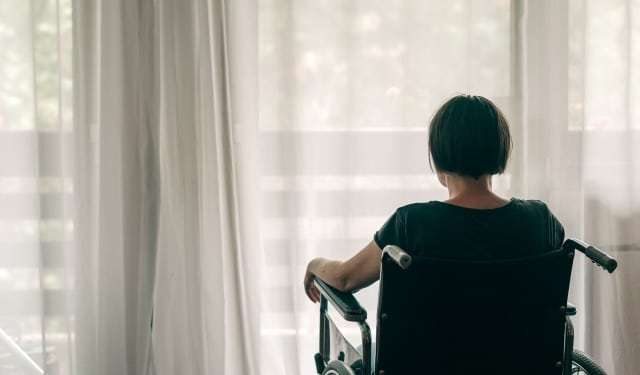I was recently invited to speak to a class of student nurses and discuss how 12-Step Recovery programs like AA can help someone struggling with bipolar disorder and substance use disorder.
Bipolar Disorder and Substance Use Disorder
Someone I met in the past with bipolar disorder and substance use disorder was a young woman, in her late 20’s. Sarah grew up in a chaotic home. Her mother was very likely undiagnosed and was left untreated with bipolar disorder and a multiple substance use abuser. Her father did not have the capacity to deal with the situation and was not very present in Sarah’s life.
Sarah spent her teen years fluctuating between deep depression, self-harm, and high-risk behavior. She started with alcohol and pot, dabbled with cocaine (too expensive), and ended up on pills, then heroin.
Somewhere along her journey, she made it into a 28-day treatment program. There she began to learn a little something about herself and the disease of addiction.
Dual Diagnosis
It was during that program that she realized that like her mother, she met the criteria for bipolar disorder.
This is called a dual diagnosis, when a person not only has a substance use disorder, but also a mental health diagnosis; such as depression; a higher level of anxiety, bipolar user disorder, or one of the schizoaffective disorders.
As you might imagine, adding alcohol or other drugs on top of a diagnosis like this can make it difficult for a person to navigate the complexities of human life.
UNDERSTANDING ACCELERATED OPIOID DETOX
Dual Diagnosis Treatment
Sarah began treatment for her bipolar disorder. Between that and the new world of support, she found that in her recovery community at AA, her experience of life was like a wave after wave of unexpected emotions. She was also experiencing what she described as “miracles.”
Her miracles? Friendship with sober people. A full-time job with benefits. Laughter. A sponsor who she meets with regularly and can call day or night. Sleeping like a rock. Crying when she has another breakthrough. Compassion for her mother, and a very small sliver of hope that maybe, her mother will come to see she doesn’t have to live life the same way.
Dual Diagnosis Treatment Options
I hope you’ll call our offices if you or a loved one has any doubts about your ability to experience freedom from addiction. While I’ve talked a lot about 12 Step recovery programs in this post, we recognize that a variety of different programs can be useful for different individuals, and we connect our patients with the full range of options, including: SMART Recovery, Celebrate Recovery, and Refuge Recovery. And in the 12 Step world itself, there are more-individualized options like Y12SR (Yoga 12 Step Recovery).
Please choose the path that is the best fit for you.
Conclusion
I think the great gift of AA and other recovery meetings is the discovering and owning of one’s own innocence; recognizing finally and wholly that each of us is a beloved, unique creation, no matter what we do or have ever done. Such a hard message to swallow for people who have spent years covering their pain with false beliefs and gathering ‘evidence’ that they are undeserving.
Richard Rohr says, “Free and un-earnable love is a humiliation for an egocentric or narcissistic personality. We have no control over it. Only a radical experience of grace can move us beyond the self-defeating and tired storyline of reward and punishment, in which almost all lose. Only a deeply personal experience of unearned love can move us beyond a worldview of arbitrary requirements to a worldview of abundance and availability.”
When Sarah came in for a visit last week, this ‘worldview of abundance’ was very clear. “I never believed the sense of freedom I feel was possible,” she said. “It is such a sense of relief. I get to be sober from my bipolar disorder and substance use disorder. I get to use it in the service of others…I can’t wait to spend the rest of my life sober.”
Joan Shepherd, FNP
Last Updated: January 17, 2022


